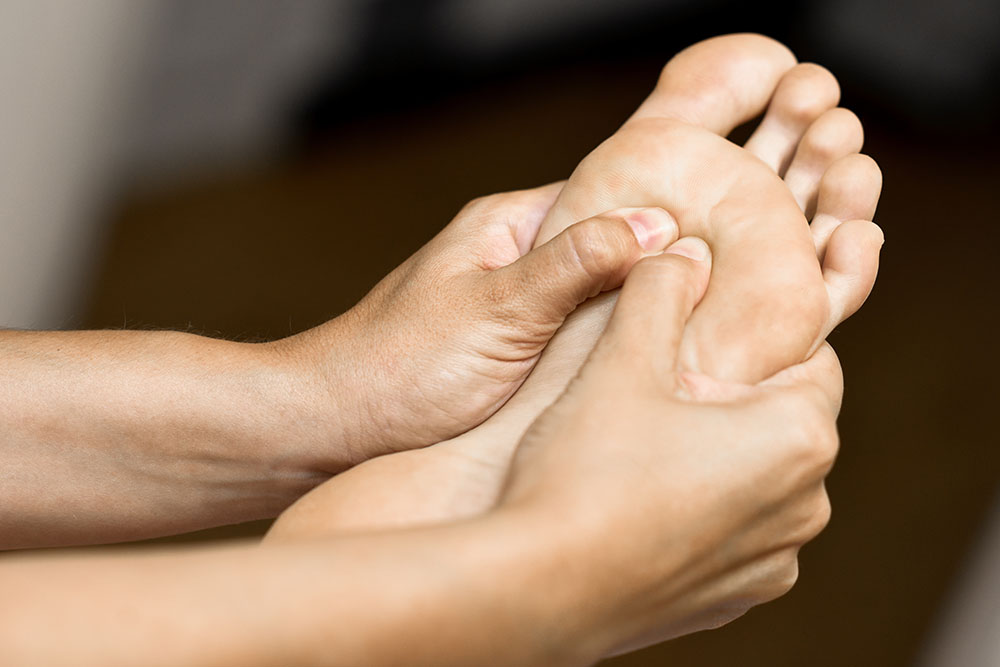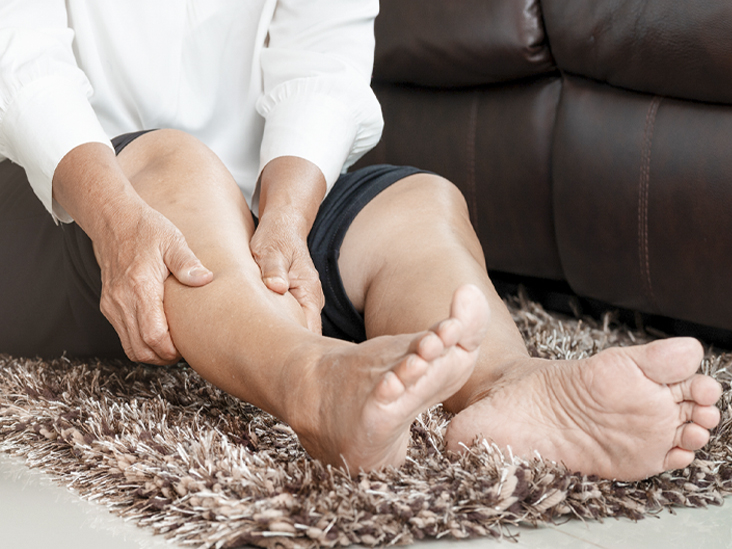Table of Contents
Diabetic Neuropathy – Control your diabetes before it controls you!
It is a type of nerve damage that can occur if you have diabetes. High blood sugar (glucose) can injure nerves throughout your body. Diabetic neuropathy most often damages nerves in your legs and feet.
Diabetic Neuropathy is a complication of Uncontrolled Diabetes. Affects the nerves of the body causing burning, numbness, pain, loss of sensation of the foot. Constipation and disturbances in urinating can also be signs of diabetes. Diabetes can cause excessive sweating and perspiration.
Who gets affected more?
If you have diabetes, your chance of developing nerve damage caused by diabetes increases the older you get and the longer you have diabetes. Managing your diabetes is an important part of preventing health problems such as diabetic neuropathy.
Let us get in detail on Diabetic Neuropathy
TYPES –
- Peripheral neuropathy
- Autonomic neuropathy
- Proximal neuropathy
- Focal neuropathy
Let us get a little deeper into these three types;
Peripheral neuropathy
A result of damage to the nerves outside of the brain and spinal cord (peripheral nerves), often causes weakness, numbness, and pain, usually in your hands and feet. It can also affect other areas of your body.
Causes
- Traumatic injuries
- Infections
- Metabolic problems
- Inherited causes
- Exposure to toxins
- The most common cause is diabetes. People with peripheral neuropathy generally describe the pain as stabbing, burning, or tingling.
- Numbness and tingling in the feet or hands.
- burning, stabbing, or shooting pain in affected areas.
- loss of balance and co-ordination.
- muscle weakness, especially in the feet.
- changes in the way you walk
- loss of balance, which could make you fall more often
- loss of muscle tone in your hands and feet
- pain when you walk
- problems sensing movement or position
- swollen feet
Autonomic neuropathy
It is a group of symptoms that occur when there is damage to the nerves that manage everyday body functions. These functions include blood pressure, heart rate, sweating, bowel and bladder emptying, and digestion
Causes
- Diabetes, especially when poorly controlled, is the most common cause of autonomic neuropathy.
- Nerve damage throughout the body.
- Abnormal protein buildup in organs (amyloidosis) affects the organs and the nervous system.
Symptoms of Autonomic neuropathy
- Constipation (hard stools)
- Diarrhea (loose stools)
- Feeling full after only a few bites (early satiety)
- Nausea after eating.
- Problems controlling bowel movements.
- Swallowing problems.
- Swollen abdomen.
- Vomiting of undigested food
Proximal neuropathy
Proximal neuropathy is a rare and disabling type of nerve damage in your hip, buttock, or thigh. This type of nerve damage typically affects one side of your body and may rarely spread to the other side.
Proximal neuropathy is more common in men than in women and more common in people older than age 50. Most people with this condition have type 2 diabetes.
Causes
Over time, high blood glucose also called blood sugar, and high levels of fats, such as triglycerides, in the blood from diabetes can damage your nerves and the small blood vessels that nourish your nerves, leading to proximal neuropathy.
And other health conditions that can cause peripheral neuropathy include: Auto-immune diseases
- Sjogren’s syndrome (Your immune system attacks parts of your own body by mistake. it attacks the glands that make tears and saliva. This causes a dry mouth and dry eyes.)
- Lupus ( When your body’s immune system attacks your own tissues and organs. Inflammation caused by lupus can affect many different body systems — including your joints, skin, kidneys, blood cells, brain, heart, and lungs )
- Rheumatoid arthritis ( If a joint is affected in one of your arms or legs, the same joint in the other arm or leg will probably be affected. It is an autoimmune disease that can cause joint pain and damage throughout your body )
- Guillain-Barre syndrome (a rare disorder in which your body’s immune system attacks your nerves. Weakness and tingling in your extremities are usually the first symptoms. These sensations can quickly spread, eventually paralyzing your whole body )
- Vasculitis (inflammation of your blood vessels. It causes changes in the blood vessel walls, including thickening, weakening, narrowing, or scarring. These changes can restrict blood flow, resulting in organ and tissue damage )
Symptoms of Proximal neuropathy
- Sudden and sometimes severe pain in your hip, buttock, or thigh
- Weakness in your legs that makes it difficult to stand from a sitting position
- Loss of reflexes such as the knee-jerk reflex—the automatic movement of your lower leg when a doctor taps the area below your knee cap
- Muscle wasting, or the loss of muscle tissue
- Weight loss
How can you prevent it?
To prevent diabetic neuropathy, on the whole, it is important that you take care of your diabetic level by managing your blood glucose, blood pressure, and cholesterol levels.
You should also take the following steps to help prevent diabetes-related nerve damage:
- Be physically active
- Follow your diabetes meal plan regularly
- Quit smoking
- Limit your alcohol
- Make sure to consume your medicines on a regular basis













